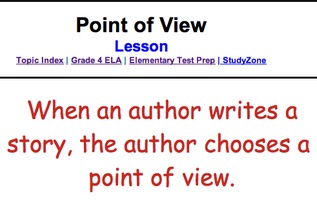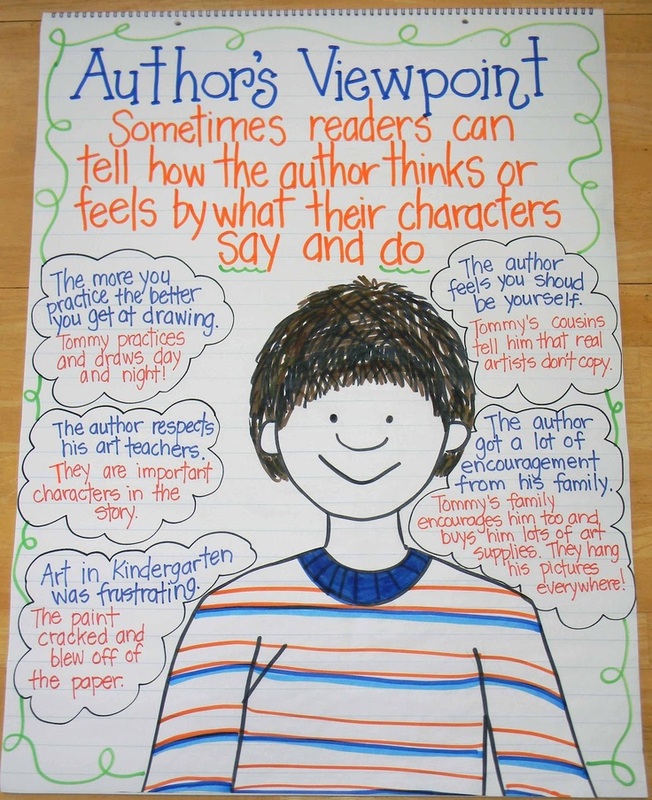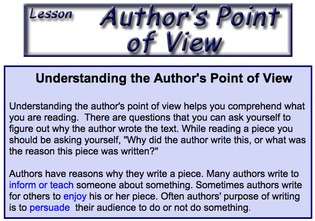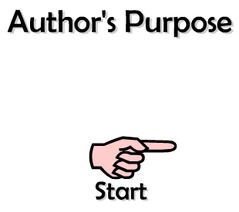Point of View
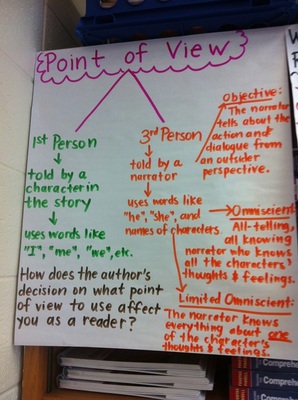
http://middleschoolteachertoliteracycoach.blogspot.com
I know how a narrator’s or speaker’s point of view influences a story.
6. Describe how a narrator’s or speaker’s point of view influences how events are described.
"It’s easy to understand what point of view a work is written from once you start reading it – the use of certain pronouns gives away the narrator’s position, and a bit more reading can solidify your observation (which is usually needed with third-person narration).
The explanation goes something like this:
1st Person: I am in the story.
2nd Person: You are in the story.
3rd Person: He/She/It is in the story.
However, that’s not all there is to it. There are different kinds of narrators – limited and omniscient – and different types of characters that might be doing the narration – like protagonists or ancillary characters. And then, as if things weren’t already complicated enough, we add in tense – present, past and future.
When you understand the intricacies of point of view – the pros and cons of using each voice and tense – you can learn a lot about a story, and about why the author made the choice he or she did concerning narration." (From http://www.youcanlearn.com/understanding-point-of-view/)
6. Describe how a narrator’s or speaker’s point of view influences how events are described.
"It’s easy to understand what point of view a work is written from once you start reading it – the use of certain pronouns gives away the narrator’s position, and a bit more reading can solidify your observation (which is usually needed with third-person narration).
The explanation goes something like this:
1st Person: I am in the story.
2nd Person: You are in the story.
3rd Person: He/She/It is in the story.
However, that’s not all there is to it. There are different kinds of narrators – limited and omniscient – and different types of characters that might be doing the narration – like protagonists or ancillary characters. And then, as if things weren’t already complicated enough, we add in tense – present, past and future.
When you understand the intricacies of point of view – the pros and cons of using each voice and tense – you can learn a lot about a story, and about why the author made the choice he or she did concerning narration." (From http://www.youcanlearn.com/understanding-point-of-view/)
